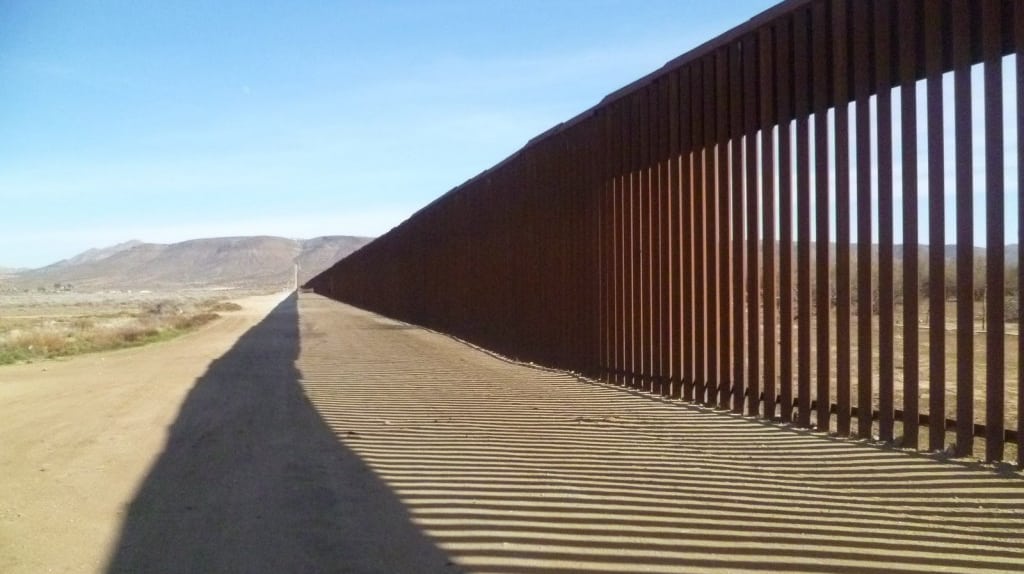Oakland mayor Libby Schaaf is a prominent member of the movement to resist the deportation of illegal immigrants. She not only supports Oakland’s decision to be a sanctuary city, but when ICE planned to arrest illegal immigrants in her city, she warned them in advance. A graduate of Loyola Law School, she has devoted much of her career to the defense of illegal immigrants. And though she understands that her role in the ICE incident violates the law (and thus could be considered a criminal act), she considers it virtuous—and more than that, her moral duty.
Morality takes precedence over law; indeed, it is the test of whether a law is just. The fundamental question in the case of sanctuary cities or states is therefore, “Is giving sanctuary to illegal immigrants moral?” If it is, then Schaaf is correct in saying she has a moral duty to support it. However, if it is not, she has a duty to oppose it. Which is the case?
First, a few historical facts. The practice of providing sanctuary is ancient. In England it can be traced to St. Augustine’s influence on the Saxon King Aethelbert. The purpose of sanctuary was to keep churches free of violence and provide a safe place for sinners to do penance. In time, it was used by murderers, rapists, and other criminals to escape civil prosecution. The problems caused by sanctuary, not least among them conflict between Church and State, led England’s Parliament to abolish it in 1623. However, it arose again in the late twentieth century in Europe and North America. Today there are over 200 sanctuary cities and states in the U.S., all of them in violation of Federal law.
The continuing and indeed growing legal controversy over sanctuary cities has obscured the moral question. It would be helpful if the Catholic Church offered an answer to that question, but it has not done so, at least not formally. As “Justice for Immigrants” (which bears the imprint of the U.S. Conference of Catholic Bishops) states: “While USCCB has never categorically expressed support for or opposition to sanctuary cities, it has spoken out against specific pieces of legislation that would have curtailed sanctuary city activity.” It goes on to cite Bishop Vasquez’s statement that “the Texas bishops’ opposition to [an anti-sanctuary] measure ‘stems from the belief that every person is created in God’s image,’” and Archbishop Cordileone’s support for the City of San Francisco’s “right to exercise reasonable and appropriate discretion in the handling of immigrant detainees, consistent with their need to maintain public safety.”
Both statements, like many others from the Church hierarchy in the U.S. and in Rome, evade the question of whether providing sanctuary to illegal immigrants is moral. The statements imply an affirmative answer, but implication falls far short of clearly stating and thoroughly explaining the Church’s position on the issue. I believe the reason for the hierarchy’s failure to take a firmer position can be explained as follows:
The hierarchy has been ensnared by the contemporary concept of “social justice. ” The concept was created by an Italian Jesuit in the 1850s, and he and his most famous student (who became Pope Leo XIII) had a carefully nuanced view of the rights of the poor, but in the latter part of the twentieth century, the hierarchy abandoned that nuance and embraced a quasi-socialistic view emphasizing the guilt of first-world nations for third-world poverty and the moral imperative of “redistributing wealth.” The new sanctuary movement shares that view, and the hierarchy seems to assume that supporting the movement is required under its obligation to serve the poor.
The hierarchy’s assumption is mistaken. As Pope Leo explained, blaming rich nations for the poverty of poor nations—as socialism does—seriously oversimplifies reality, and governmental actions that violate citizens’ rights are immoral. As he noted, “the first and most fundamental principle . . . if one would undertake to alleviate the condition of the masses must be the inviolability of private property,” and “a man’s means [must not be] drained and exhausted by excessive taxation.” (Rerum Novarum) I believe these words clearly suggest that it is morally wrong for state or federal governments to tax citizens to provide benefits for illegal immigrants, let alone to shield those immigrants from the country’s laws.
But what of the obligation to feed the hungry, shelter the homeless, comfort the afflicted, as Jesus commanded? And what of the message in the parable of the Good Samaritan? Wouldn’t denouncing sanctuary cities/states be tantamount to rejecting God’s will in such matters? Not at all.
Jesus commanded people, not governments, to perform works of charity and mercy. And it is surely not coincidental that the Good Samaritan used his own money, not the community’s, to care for the injured traveler. Giving away other people’s wealth and property without their consent is easy, and satisfying, but it is a form of theft rather than virtue.
To solve the problem of illegal immigration, we certainly need the guidance of Scripture, which commands us to show kindness and mercy to the afflicted. However, Scripture does not provide a blueprint for doing so. For that, we—and our Church leaders—need to identify the relevant facts, consider the possible solutions, and decide which one is consistent with both Scripture and sound reasoning. That approach produces the following facts and interpretations:
Immigrants who enter the country illegally are guilty of a crime. (This is no less a fact in cases where they are escaping dire circumstances.)
Many of those who enter illegally are otherwise honorable people who seek only to provide for themselves and their families and live in safety. Others, however, have committed other crimes in their native countries and/or in the United States; and in some cases the crimes are serious, such as rape or murder.
Cities and/or states that provide sanctuary to illegal immigrants make no distinction between the honorable ones and the others. They protect all of them from arrest and deportation. Doing so endangers the honorable immigrants and all American citizens.
By protecting those who have committed other crimes in addition to entering the country illegally, sanctuary cities/states violate their obligation to protect their citizens. Moreover, by enabling the criminals, they are indirectly culpable for whatever crimes the illegal immigrants thereafter commit.
Sanctuary cities/states prevent law enforcement officers from carrying out their duties and thus are guilty of obstructing justice. (This remains a fact even if they believe they are acting virtuously.)
By treating illegal immigration as acceptable, sanctuary cities/states encourage it and, correspondingly, devalue legal immigration.
By showing contempt for immigration laws, sanctuary cities/states encourage the smugglers who transport illegals and provide further opportunity to abuse them before, during, and sometimes after transit.
Sanctuary cities/states’ selective disrespect for law and its enforcement creates resentment and animosity between the illegals whom they treat favorably and the taxpayers whom they force to pay the bill.
All these consequences of providing sanctuary to illegal immigrants lead to the conclusion that the practice of providing sanctuary for illegal immigrants is immoral. The fact that those who support the practice have noble intentions and believe they are doing God’s work does not alter that conclusion. As St. Thomas Aquinas stated, “An evil action cannot be justified by reference to a good intention”; in other words, “The end does not justify the means.” (Catechism, 1759-60.)
Supporters of the sanctuary movement, including some members of the Catholic hierarchy (and leaders of other churches), will be deeply disturbed by the above argument. This is understandable because it does not challenge their view on legal grounds, as Attorney General Sessions and President Trump have done. Instead, it challenges their view on the higher-than-legal grounds they claim for themselves—the grounds of morality.
The fact that neither law or morality supports sanctuary cities/states does not absolve us of the obligation to aid those that desperation causes to flee their countries. Instead, it challenges us to remove the cause of their fleeing by helping those countries become more responsive to the physical, intellectual, emotional, and moral needs of their people.
Copyright © 2018 by Vincent Ryan Ruggiero. All rights reserved








